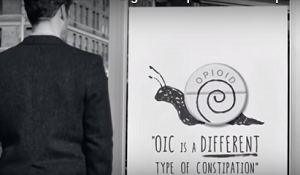A Super Bowl commercial paid for by AstraZeneca ($AZN) and Daiichi Sankyo to stimulate awareness of opioid-induced constipation (OIC) continues to draw controversy, including from the White House, days after the big game. Since Sunday, a parade of politicians, physicians and pundits have criticized the ad, linking the campaign to the opioid prescription drug addiction problem in the U.S. and forcing AZ and Daiichi, which market the OIC relief drug Movantik, to defend it.

Vermont Governor Peter Shumlin
On Thursday, Vermont Governor Peter Shumlin called for the ad to be pulled, writing a letter to the two pharma CEOs saying, "In the midst of America's opiate and heroin addiction crisis the advertisement was not only poorly timed, it was a shameful attempt to exploit that crisis to boost your companies' profits."
While neither AZ nor Daiichi make opioid drugs, Shumlin wasn't alone in linking the two issues. White House chief of staff Denis McDonough tweeted on Monday after the game "Next year, how about fewer ads that fuel opioid addiction and more on access to treatment." His comment was retweeted with the sentiment "Good point" added by White House press secretary Josh Earnest.
"For those of us in the community of addiction treatment professionals, the AstraZeneca ad's underlying message was as obvious as a blinking neon sign that read 'Use More Opioids!,'" wrote a professor and author of an addiction book in a Time web column. "It almost feels like the drug companies want to keep their flagship product (opioids) going full steam ahead by countering a major side effect with another drug. It's certainly in the best interest of the pharmaceutical companies to keep their clients satisfied enough to continue using their products."

AstraZeneca and Daiichi Sankyo's OICisDifferent.com Super Bowl ad
The Washington Post headlined its coverage of the ad: "This Super Bowl ad proved just how much America loves its opioid painkillers."
However, it was TV talk show host Bill Maher's off-color Twitter comment that referred to opioid users as "junkies" that drew a response from AZ's nonprofit partners which supported the ad.
U.S. Pain Association president and founder Paul Gileno responded to Maher, saying in part that his tweet was "appalling, disingenuous and dangerous." He continued, "In the current health care landscape, chronic pain patients are continually forced to 'prove' their pain. They face backlash and ridicule instead of compassion and help. U.S. Pain Foundation collaborated on this ad with other organizations to spread awareness and information. … The goal--for all involved on this project--was to make sure people living with OIC do not feel embarrassed or alone. It therefore saddens and angers me that those with high profiles would choose to increase the stigma associated with chronic pain without researching the pain care crisis in America."
AZ also defended the ad in a USA Today article. "This condition, which affects millions of Americans, is something we needed to raise awareness and dialog about," said Dave Fredrickson, AZ's VP of specialty care. "I think that is separate and distinct from the topic around the appropriate use of opioids. We certainly believe that increased discussion about the appropriate use of opioids is a good thing, and in the interest of public health."
Did the pharmas get their money's worth, reported at $5 million per 30 seconds this year? Pushed perhaps by the additional media coverage, so far the ad has been mentioned more than 38,000 times on social media, mostly on Twitter and Facebook, in the past few days, according to real-time TV tracker iSpot.tv. It also had a 50% positive Tweet rating and has been viewed more than 2 million times online, according to iSpot.
- see the Time opinion piece
- read the McDonough tweet
- here is the Washington Post article
- read Gileno's letter